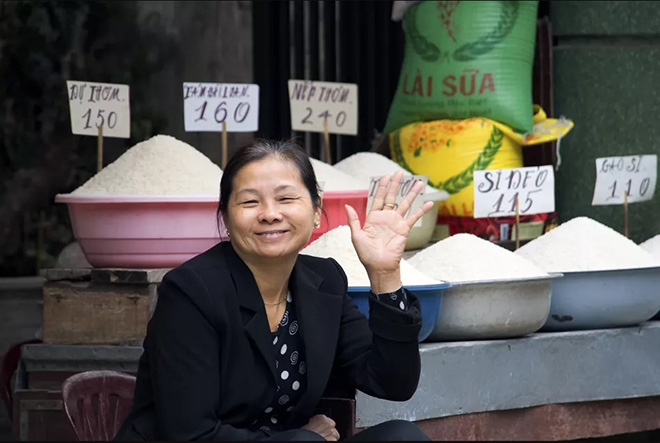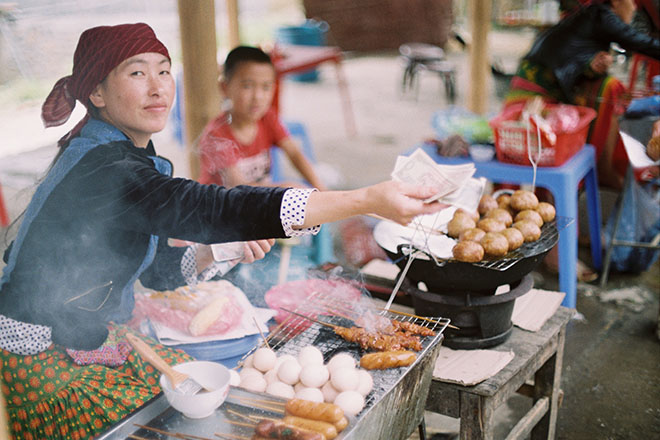A proper greeting is a super easy but effective way to get to know someone new and leave a warm impression on others. This applies to visitors when traveling to other countries as well. So, when you travel to Vietnam, knowing how to say greeting in Vietnamese and being able to use them will be a big bonus.
If you are planning a trip to Vietnam, the following 5-minute guide will be of great help when you want to greet a local.
Master The Vietnamese Greeting In 5 Minutes
Important Words To Know
Like any other languages, you don’t need to cram for the whole Vietnamese dictionary to understand how to say greeting in Vietnamese. Only a few essential are enough to master the language in terms of welcoming.
Group 1: Words means Hello, Goodbye
“Chào” means “hello” in English. You can add “xin” to the front of “chào”, which combines to make “Xin chao” to be more polite, typically reserve this for the elderly or someone you admire.
To greet teenagers, adults or young generation, you can use “Hi” or “Hello” as in English because this is a compulsory subject at school so most people will understand.
For “Goodbye”, you can say “Tạm biệt” (“tam bee-et”). Again, when counting youngster, “Bye” can also be used without further explanation.
Group 2: Vietnamese pronouns
Vietnamese pronouns are enormous. They are categorized on the basis of age and gender. You can add the pronouns after greeting in Vietnamese “Chào/ Xin chào” to increase the politeness and show off your language ability, getting you to communicate more confidently.
But using the wrong one could be such an embarrassment. So, these are the most multi-purpose words you should know
- Bạn: friend of the same age
- Anh (pronounced “ahn”): older male of your generation
- Chị (pronounced “chee” ): older female of your generation
- Em: younger person, either gender, of your generation
- Bác: older person, either gender, of your parent generation
- Ông: older male of your grandparent generation
- Bà: older female of grandparent your generation
Polite words
In Vietnamese, there are some no meaning words but you should add to the end your sentence to show the closeness or politeness with the other person in the conversation
- nhé (other variations: nha, nhá): used in most situation, show the friendliness
- ạ: used when you speak to seniors, show politeness and respect

Common Structures For Greeting in Vietnamese
Basically, you can form a proper salutation, using the words above and following these two structures
- Chào/ Xin chào/ Tạm biệt + Pronouns (nhé/ạ)
Example: Chào bạn nhé, Xin chào ông ạ
Remember to use the correct pronouns for the appropriate person.
- Chào + time of the day (nhé/ạ)
Example: Chào buổi sáng (pronounced “chow boy song”)
If you already know the other person’s name, you can simply say “Chào/ Xin chào + (name)”.

Accompanied Gestures For “Natural”
- Wave: hand waving is common among friends and people of the same generation, social class. It is the friendliest way to greet someone in any culture and in Vietnam
- Handshake: this is typical of the Western nations, but as Vietnam is making more trade with the upper world, handshake becomes widely used between businessmen.
- Bow: the Vietnamese don’t make a full bow like the Japanese. A slight bow can express respect for the elders.
- Smile: don’t forget to curl a smile. This is the universal sign of welcome and happiness.
- Hugging is not very common in Eastern culture, particularly if it is the first time you meet each other. So, it’s better off not doing this with a stranger.
Bonus Tips Tor Making Friends With The Vietnamese
Hang out in local places
Instead of visiting tourist attractions, you should spare some time wandering around the street, having meals at a local vendor, chilling at a local bar. Only by traveling like a local, can you make friends with them.
Get a native tour guide
Another way to have a Vietnamese friend is to hire a local guide. They not only lead to the most authentic destinations but also give you a huge amount of useful information for your excursion. Booking a travel package with a local tour operator which enable you to have some personalization is also a great idea.
Join in the expat groups
There are a lot of forums and communities on the Internet for foreigners living and traveling in Vietnam, so you can join with them to find out more about Vietnamese culture, becoming aware of the dos and don’ts in this country.
Don’t be shy
“A journey of a thousand miles begins with a single step”.
You need to make the first move if you want to befriend with a stranger. Too many worries about mistakes and embarrassment will lead you nowhere. Just do it and things will come in the way.




Comments